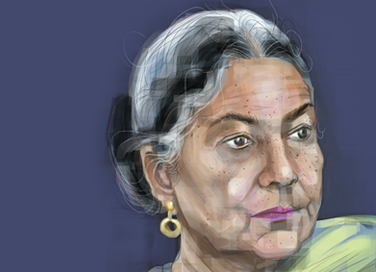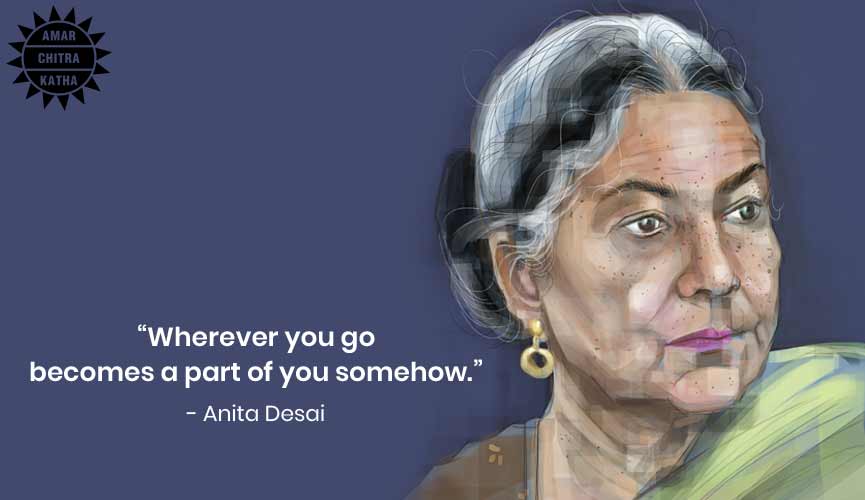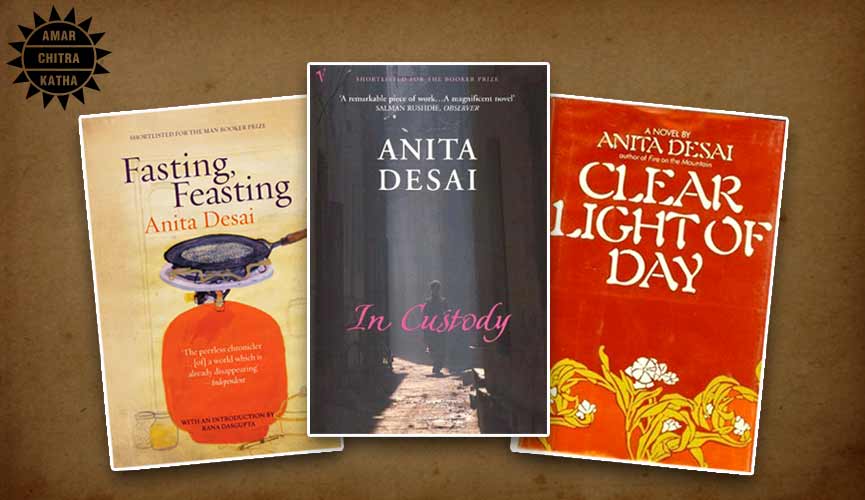Profile: Anita Desai
- December 28, 2020


Profile: Anita Desai
- December 28, 2020
By Nitya Menon
“Wherever you go, becomes a part of you somehow”
– Anita Desai
To receive more such stories in your Inbox & WhatsApp, Please share your Email and Mobile number.
Anita Desai, who started writing at the age of nine, emerged to be one of India’s most respected novelists. Her achievements include being shortlisted for the Booker Prize three times and receiving the Sahitya Academy Award in 1978 for her book, Fire on the Mountain. She has indeed not only left her mark in the genre of fiction but also nurtured her daughter Kiran Desai in doing so.
Born in 1937 in Mussoorie, India, Anita Desai grew up speaking German, Hindi and English. She was a student of Queen Mary’s Higher Secondary School in Delhi and later went on to receive a B.A. in English Literature from the University of Delhi. As a child, she always seemed to notice how her family was different from other families in the community in terms of culture and caste. Her mother, who was German, adapted and practised every Indian culture and tradition, yet she always felt like an outsider.

Anita Desai’s childhood days serve as a major theme in her novels. Her writing style is often poetic and descriptive, revolving around fiction and fantasy and the use of symbols and flashbacks. Many of her novels explore the state of middle-class women and the tensions that exist in these families. Anita Desai always believed in quoting the truth as it is,
“I aim to tell the truth about any subject, not a romance or fantasy, not avoid the truth”.
The characters in her novels are quite beautifully written and expressed and a special emphasis is given to female protagonists. The themes of her books are often associated with her own personal life experiences.
Her other novels include Clear light of the day, Where shall we go this summer, Fasting, feasting and In custody.

Anita Desai believed the art of writing can only emerge with good reading, she often starts her morning by reading, sometimes books on poetry that strikes the right note for her to begin her writing. She always says her first love was fiction and the motivation to start writing came from her family and the books she frequently read and loved, especially Thomas Hardy and D.H Lawrence who were big influences. She also took a great interest in Japanese and Russian literature such as Dostoyevsky that opened her sense of imagination and the discovery of a new part of literature.
Her work is well-appreciated, and the major awards received were the Padma Bhushan in 2014, Sahitya Academy Fellowship in 2007, and shortlist for the Booker Prize in 1980, 1984 and 1999. She has also received the Royal Society of literature Winifred Holtby Prize in 1978. She is a professor of Humanities in the Massachusetts Institute of technology and once taught at Cambridge, Oxford.
As an accomplished author, her message to young budding writers is that one would have to face several difficulties in the journey. It is important to be very persistent and stubborn to achieve what one dreams of. She suggests that writers first begin with short pieces and send them to magazines and newspapers, and once you are confident and it gives you a great sense of joy and delight you can go ahead and write novels and once you start you would never want to stop.
To receive more such stories in your Inbox & WhatsApp, Please share your Email and Mobile number.

Comic of The Month
The Naval Journey of India Book I
This book is the first of a three-book series that takes a deep and detailed look at India's Naval History and a deep insight into the lives of our men and women in white. But any series on the Indian Navy has to start at the very beginning - exploring India's celebrated maritime history. Join our little hero, Bharat, and his grandfather, Commodore Sagar, as they sail into the deep blue waters of time. Book I of The Naval Journey of India takes a sweeping look at India's maritime endeavours, how the seas impacted us over millennia and how the oceans made us who we are.